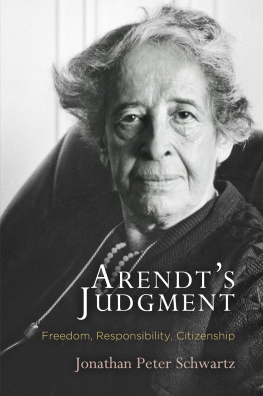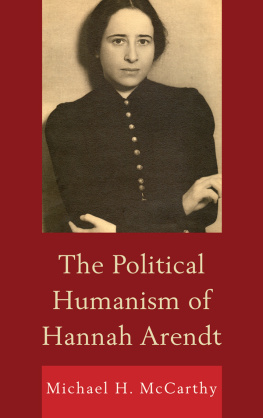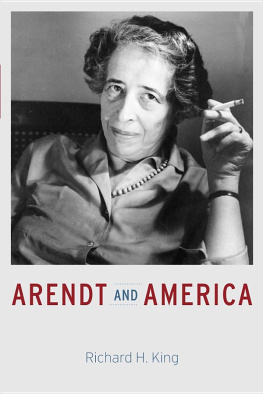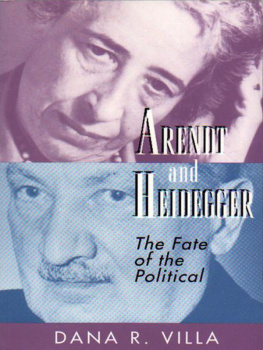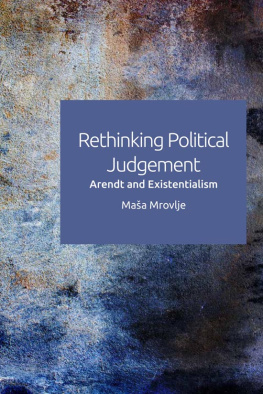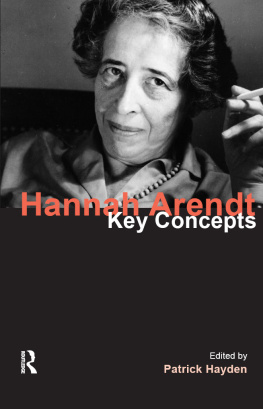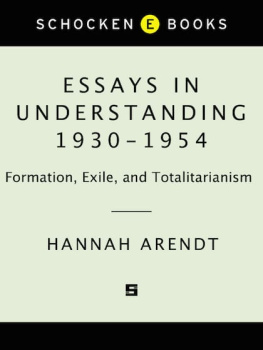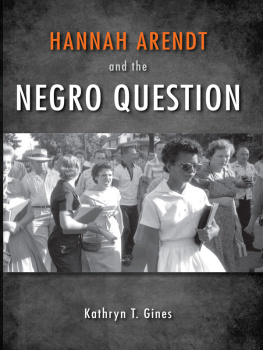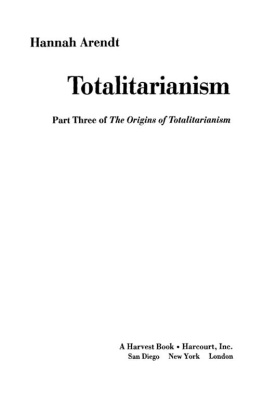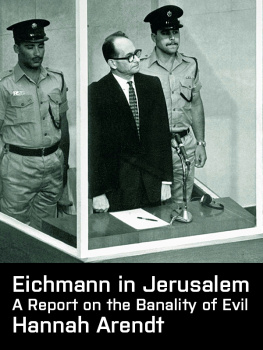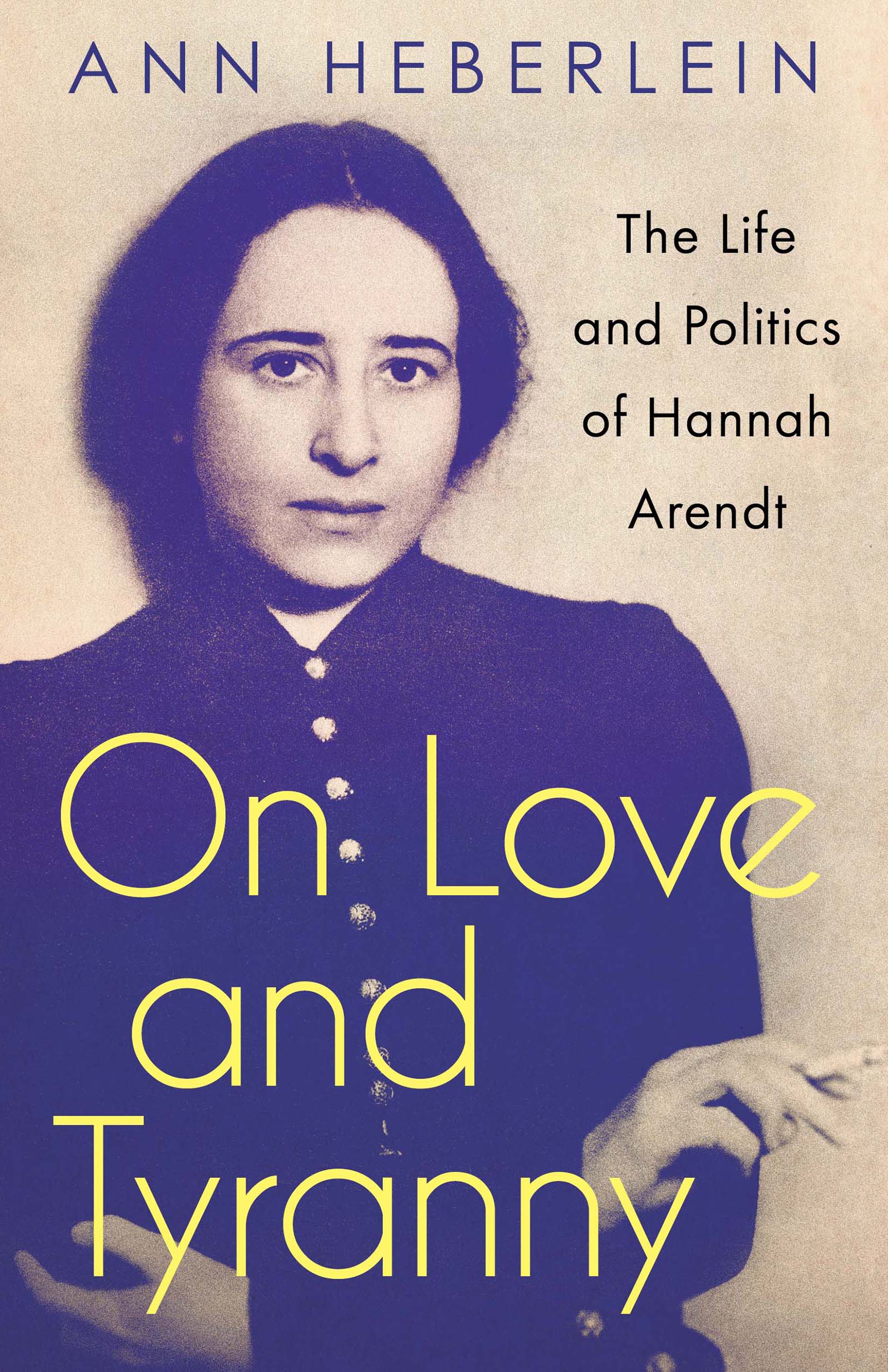
On Love and Tyranny
On Love
and Tyranny
The Life and Politics
of Hannah Arendt
Ann Heberlein
Translated from the Swedish by Alice Menzies
Copyright 2020 Mondial and Ann Heberlein
English translation copyright 2021 Alice Menzies
First published as Arendt: Om krlek och ondska in 2020 by Mondial
First published in English in Canada in 2021 and the USA in 2021
by House of Anansi Press Inc.
Published by agreement with Mondial
www.houseofanansi.com
All rights reserved. No part of this publication may be reproduced or transmitted in any form or by any means, electronic or mechanical, including photocopying, recording, or any information storage and retrieval system, without permission in writing from the publisher.
House of Anansi Press is a Global Certified Accessible (GCA by Benetech) publisher. The ebook version of this book meets stringent accessibility standards and is available to students and readers with print disabilities.
Library and Archives Canada Cataloguing in Publication
Title: On love and tyranny : the life and politics of Hannah Arendt /
Dr. Ann Heberlein ; translated by Alice Menzies.
Other titles: Arendt. English
Names: Heberlein, Ann, author. | Menzies, Alice, translator.
Description: Translation of: Arendt : om krlek och ondska.
Identifiers: Canadiana (print) 20200273426 | Canadiana (ebook) 20200273493 |
ISBN 9781487008116 (softcover) |
ISBN 9781487008123 (EPUB) | ISBN 9781487008130 (Kindle)
Subjects: LCSH: Arendt, Hannah, 1906-1975. | LCSH: Political scientistsBiography. | LCGFT: Biographies.
Classification: LCC JC251.A74 H4313 2021 | DDC 320.5092dc23
Book design: Alysia Shewchuk
Cover image: Hannah Arendt in 1933, from Hannah Arendt: For the Love of the World by Elisabeth Young-Bruehl / Wikimedia Commons
House of Anansi Press respectfully acknowledges that the land on which we operate is the Traditional Territory of many Nations, including the Anishinabeg, the Wendat, and the Haudenosaunee. It is also the Treaty Lands of the Mississaugas of the Credit.
We acknowledge for their financial support of our publishing program the Canada Council for the Arts, the Ontario Arts Council, and the Government of Canada.
If only world history were not so awful,
it would be a joy to live.
Hannah Arendt, 1952
Contents
Preface
Why Hannah Arendt?
If Hannah Arendt had not existed, someone once wrote, it would most certainly be necessary to invent her. The story of Hannah Arendts life is one of obstacles and victories, light and darkness, setbacks and successes. Born in the early twentieth century, she lived through two world wars and was driven out of both her homeland Germany and Europe, to live in exile in the United States. Hannahs life spanned a decisive chapter in the history of the Western world, a time in which the values and ideas of humankind and its worth, of good and evil, guilt and responsibility, were tested and reshaped.
Hannah Arendt is often described as a philosopher, but she herself rejected this label. In an interview broadcast on West German television in 1964, she pushed back against the notion that she belonged to the circle of philosophers.
My profession, if one can even speak of it at all, is political theory. I neither feel like a philosopher, nor do I believe that I have been accepted in the circle of philosophers, she explained.
There is a backstory to Hannahs reluctance to be defined as a philosopher. Despite having claimed, as a teenager, to have chosen between studying philosophy or drowning herself, she was deeply disappointed by intellectuals in particular the philosophers sympathy for and willingness to surrender to the Nazi ideology that swept through Germany in the 1930s. When Hannah fled her homeland, she made a promise to herself never to associate with intellectuals again. She wanted to change the world, but no longer believed in the power of philosophy to do so. Thus Hannah ended her relationship with the realm of theory, and decided to work practically and politically instead.
In the foreword to Men in Dark Times (1968), Hannah writes about those rare people who, with their luminosity, intellect, and originality, manage to spread hope and light, even in moments of desperation:
Even in the darkest of times we have the right to expect some illumination, and that such illumination may well come less from theories and concepts than from the uncertain, flickering, and often weak light that some men and women, in their lives and their works, will kindle under almost all circumstances and shed over the time span that was given them on earth.
There is no doubt that Hannah Arendt herself belonged to the group of people who possessed this singular ability to spread light even in the darkest of times, shining so brightly that their impact is felt long after their time on earth is over.
The letters she exchanged with Martin Heidegger, Heinrich Blcher, Kurt Blumenfeld, Karl Jaspers, Gershom Scholem, and Mary McCarthy paint a picture of a woman with a sharp intellect, a cutting wit, a broad capacity for self-reflection, and a passionate attitude toward the world. This combination of qualities of heart and mind, common sense and emotion is exceptional.
Hannah Arendt has been a friend of mine for many years. I first read her as a theology undergraduate at Lund University in the early nineties, and immediately found myself drawn to her style of reasoning and her clear arguments. She awoke my interest in thinkers like Kierkegaard, Jaspers, and Heidegger, and soon became something of an intellectual kinswoman to me. Hannahs discussions of forgiveness proved vital to my doctoral thesis, Krnkningar och frltelse (Violations and Forgiveness), and she has featured in one way or another in all of my books since.
At some point during my postgraduate studies, I came across Elbieta Ettingers book on Hannahs love affair with Martin Heidegger. The book drew my attention to the private Hannah, and I began to devour Hannah Arendt biographies and the correspondence between Hannah and her friends. The idea of writing a book about Hannah, her life, and her philosophy took root, and I am so pleased that I have finally had the opportunity to do just that.
I make no claim to providing a complete picture of Hannahs life and philosophy; that was never my intention. Instead, I have taken the liberty of focusing on the events in Hannahs life that interest me most, lifting out the ideas I find most fruitful and attempting to place Hannah, her story, and her thinking into a wider context.
Hannah Arendt was not just a brilliant theorist; she was also a fascinating woman who lived a dramatic life. That is what I want to talk about here. My ambition is to depict Hannahs life and development as an intellectual her thinking is closely related to her concrete experiences, after all and to outline a dramatic moment in the history of humankind.
Using her own books, essays, and poems, the correspondence sent between Hannah and her many friends, her interviews, and her diary entries, I want to tell the story of Hannah Arendt and the concepts that became major themes in her life: love and evil.
Next page


